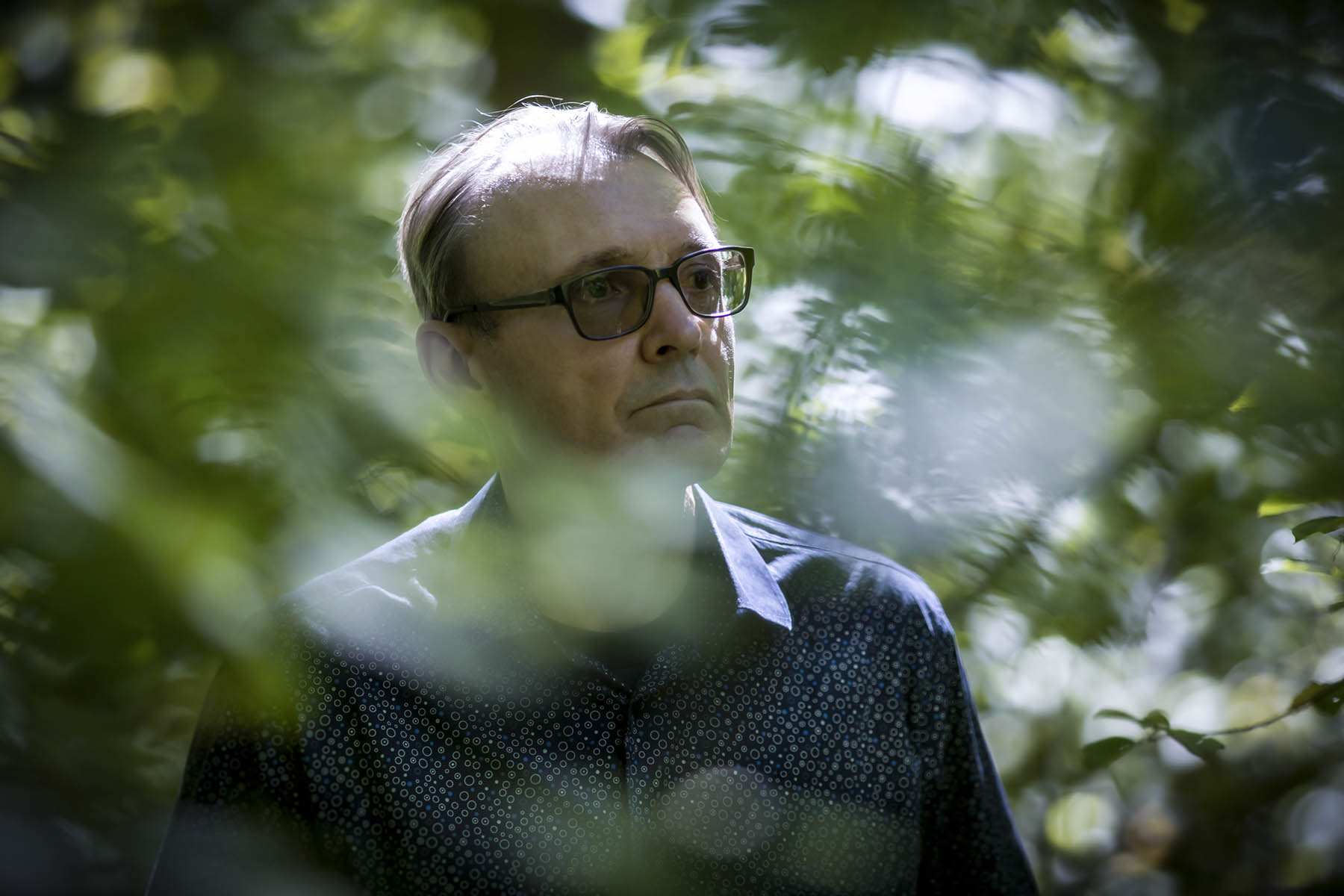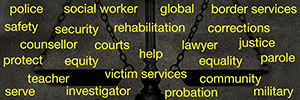- Future Students
- Current Students
- Faculty
- Staff
- Alumni
- Others
New book from UofGH's Dr. Glenn Barenthin explores human cooperation

Why do humans cooperate? Why is it that only human beings – and no other animal – can work together to such an extent as to build and maintain large-scale civilizations?
It’s a philosophical question that has fascinated evolutionists since Charles Darwin, and it’s one that University of Guelph-Humber Justice Studies Acting Assistant Program Head Dr. Glenn Barenthin explored in his new book, Solving the Evolutionary Puzzle of Human Cooperation.
“I did my dissertation on cooperation, and it took me into so many different fields – from the cognitive science of religion to psychology to neuroscience to philosophy and anthropology,” Dr. Barenthin said.
“The question centred on the fact that we have this huge civilization, and we’re the only species in the world that can cooperate with strangers – we can send a message to China and think that they’ll cooperate with us and help us accomplish something. If you took one chimpanzee – the closest species to us – and brought him to another tribe, he’d be killed.
“Why are humans different?”
Big God Proponents
A popular explanation for the human capacity for cooperation – long suggested by a group of thinkers referred to as Big God Proponents – is that a moralizing God is the essential motivator of the pro-social behaviour necessary for the formation of large-scale civilizations. In other words: human beings act ethically out of fear for the consequences of defying God.
In his book, Dr. Barenthin spends a chapter confronting and ultimately rejecting that notion.
“I think the Big God Proponents, who use historical evidence, mix up cooperation with coercion,” Dr. Barenthin said. “For instance, if you said in the 15th century that you didn’t believe in God, people would say you were crazy and kill you. So I think a lot of times cooperation came about in spite of the traditional values and some of the religious ideas that were around at the time.”
Instead, Dr. Barenthin used evidence from anthropology, cognitive science, psychology, history and game theory to put forth a new theory hinging on two different types of cooperation. “Thin cooperation” describes the type of cooperation that – as a result of evolutionary pressures – comes naturally to human beings, who first cooperate with family and then in small tribes and communities of people.
“The human brain naturally wants to be with other people, but within a small group of people,” he said.
“To be able to extend to accept strangers, that takes a lot of effort. It’s difficult for human beings. I call that ‘thick cooperation.’ And how that comes about, I argue, is through this idea of human rights: every individual has autonomy, we’re accepted as individuals, and we have our right to live our lives. If you look around the world, people have different ideas about that.”
An expansive project
Dr. Barenthin’s research dovetails with some of the courses he teaches at the University of Guelph-Humber. He led a Study Abroad course to southern France, where his students had the opportunity to visit the Pech Merle cave and view cave paintings as old as 25,000 years that Dr. Barenthin suggests might have represented one of the first instances of humans trying to connect to the spiritual world.
Dr. Barenthin is also teaching a course called “Ethics in the Justice System.” For the course, he’s using a chapter of his new book that argues against the idea that society must rely upon tradition to promote ethical values.
“In my view, traditions should be challenged. You should be allowed to challenge them without being killed – I think that is essential for human cooperation,” he said.
There’s also a lesson for his students in the process by which he assembled his book. With hundreds of references and research that spanned a vast array of disciplines, Dr. Barenthin’s book was no small undertaking – but he enjoyed every part of writing it.
“It was challenging. It was really diverse, but I was so interested. I read a lot, but I enjoy reading. I’ve got so many different interests,” he recalled.
“I tell students that when they ask: ‘What should I do?’ You should do what interests you.”
University of Guelph-Humber students can access Dr. Barenthin’s book through the Library here.







